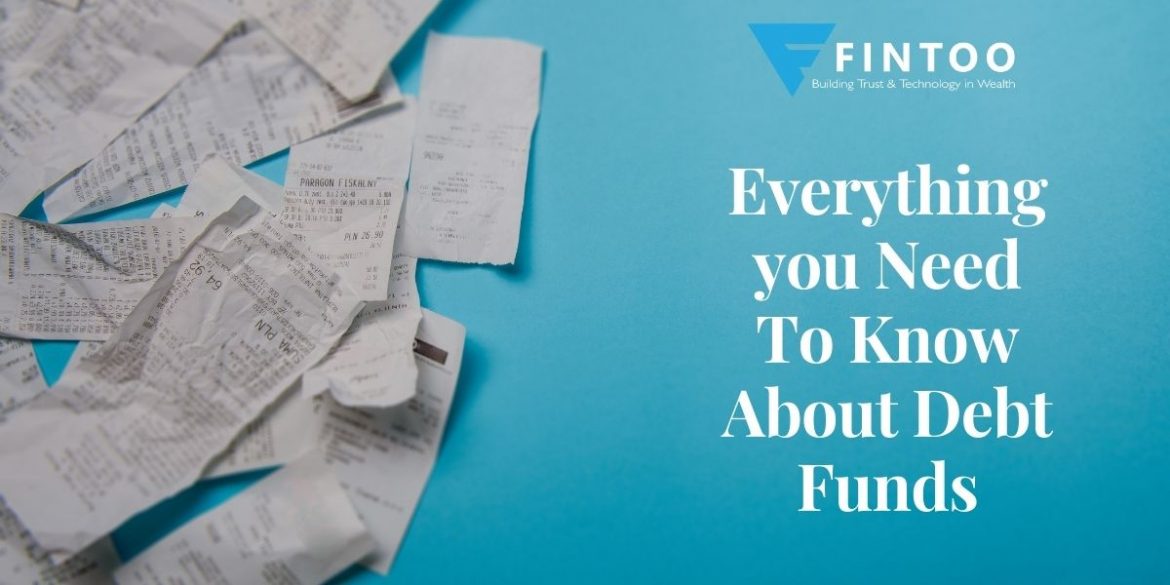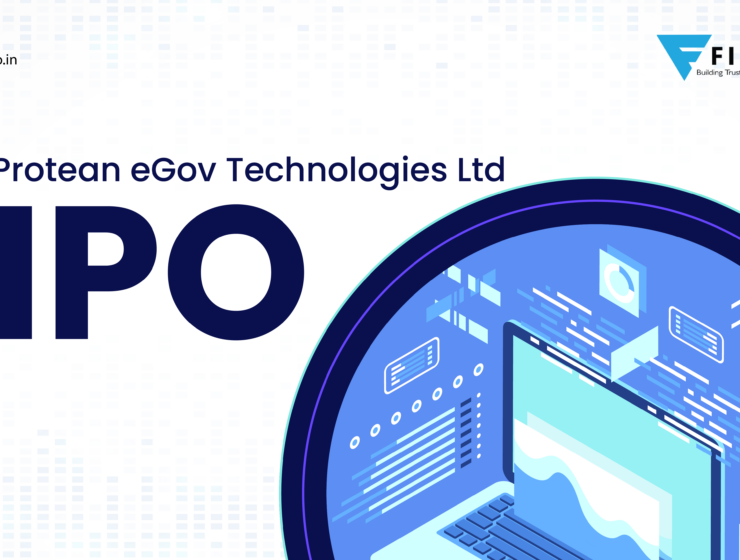

Debt funds are basically mutual funds that are invested in fixed income securities like bonds, treasury bills, govt. securities, money market instruments. These bonds can be short term, medium term and long term. The maturity is for a fixed period. The returns are not that high as compared to equity, but they are linked to the market performance of the securities they are invested in. Debt funds ensure the investor that his money is safe and doesn’t have much risk.

Let us see some of the features of debt funds:
- Fixed maturity period
- Invested in fixed income securities
- More suitable for short term goals.
- Easy liquidity
Debt funds are very important to balance one’s portfolio. If a person is very conservative and doesn’t want to take any risk with his money, he can go for debt funds. Even though people find it the safest investment, there is still a chance of risk, if the interest rates go up. The chances of such risks occurring is very low.
Another benefit is that, if a person holds the debt fund for more than 3 years, his debt fund will be considered as long term and he will be taxed 20% after indexation. Indexation takes inflation into account and thus reduces the tax on capital gains. TDS is also not deducted on the gains.

Debt has 2 types of funds, open ended and closed ended funds. Open ended funds are those funds which can be sold or repurchased throughout the year. Some of these funds are short term funds, gilt funds, MIPs, etc. For open ended funds, there is no entry load but there can be an exit load, if the funds are withdrawn within a specific period. Now coming to close ended funds, these funds can be bought only at a specific time, that is during the NFO (New Fund Offer). Once the NFO closes, one cannot invest in it. Closed ended funds are for a specific period of time and the chance of exiting is very low. One can only exit by selling it in the secondary market. The risk factor is low compared to open ended schemes.
It is a big risk to put all your money in an equity fund. A better way to manage your money or rather a safer option to put your lump sum amount, would be in a debt fund. And through STP (Systematic Transfer Plan), you can transfer a certain amount to the equity fund from the debt fund. If a person is close to retirement, he can invest his money in a debt fund, because he cannot take a risk with this goal.

Must Read : Choosing The Best Equity Mutual Fund In Current Volatile Market
How to choose a debt fund?
Well, there are many factors that need to be considered, while choosing a debt fund:
- Need: The most important factor is to know one’s needs. The duration of the goal has to be known first. Only then can one search accordingly.
- AUM of the Fund House: Fund houses with AUM more than 500 Cr. should be considered. The more the AUM, the less the expenses ratio. There’s more trust in such Fund Houses.
- Exit Load: One should also look at the exit load charges if they want to exit their money beforehand.
- Past performance: It is also necessary to check the past performance of the fund, though it won’t help to know the future performance, it helps to know whether the fund is performing consistently or not.
- The asset allocation of the portfolio: It is also important to check where the fund has invested in. So you know which assets you’re comfortable with.
These are the factors to be looked for by a person who has no deep knowledge about debt funds. If they still don’t feel confident about it, it is always advisable to seek an expert’s help.

There are many debt funds in the market. It all depends on one’s need and for how long they want it. Some of the debt funds are as follows:
- Gilt funds: These funds are invested in Govt. securities only. It doesn’t have default risk, but having said this, there is a chance of risk with the interest rates, especially long term gilt funds, which are riskier. In this type of fund, one can look at it as a way to increase capital, instead of capital protection. They should also be willing to take the risk.
- Low Duration funds: These funds are invested in commercial papers, bonds with a maturity of 6-12 months, certificates of deposits, etc. Their performance is mostly stable as the changes in interest rates do not affect them. The returns are higher as compared to liquid funds. People who want to invest their surplus money for 6 – 12 months, can invest in this.
- Fixed Maturity Plan (FMP): They are invested for a fixed period of time, in papers matching their maturity. So, there is no interest rate risk in this case. The interest rates of these funds are very predictable, but not guaranteed. But there is reinvestment risk involved. If people are not sure of the interest rates, they can go for these funds.
- Liquid Funds: They are invested in liquid instruments like, treasury bills, Certificate of Deposits, commercial papers, etc. These funds have stable returns. People can invest in such funds instead of keeping their money in savings account. These funds are invested for a very short time, like a few days or months.
Apart from these, there are many other funds like Dynamic Funds, Long duration funds, and so on. so if you are a conservative investor and even planning to invest, to get a regular flow of income, debt funds are most suitable to you.
A financial planning platform where you can plan all your goals, cash flows, expenses management, etc., which provides you advisory on the go. Unbiased and with uttermost data security, create your Financial Planning without any cost on: http://bit.ly/Robo-Fintoo
To Invest and keep regular track of your portfolio download: Fintoo App Android http://bit.ly/2TPeIgX / Fintoo App iOS http://apple.co/2Nt75LP‘
Disclaimer: The views shared in blogs are based on personal opinion and does not endorse the company’s views. Investment is a subject matter of solicitation and one should consult a Financial Adviser before making any investment using the app. Making an investment using the app is the sole decision of the investor and the company or any of its communication cannot be held responsible for it.
Related Posts
Stay up-to-date with the latest information.


